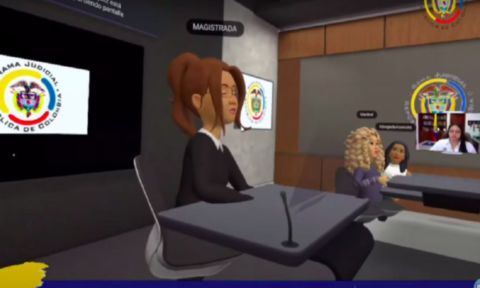Elizaveta Gromova, Deputy Director for International Affairs of the Institute of Law of South Ural State University has published a study in the International Journal of Law and Information Technologies devoted to the issues of trust of professional lawyers in digital technological innovations. First of all, we are talking about hearings held via videoconferencing. The prestigious journal is included in the first quartile of Scopus publications in the Law category.
"We live in the 21st century where hearings are held in the metauniverse, and ChatGPT helps to deliver judgment. Unfortunately, lawyers still have little trust in digital technologies, and there are reasons for that," says Elizaveta Gromova. "We cannot and hardly should stop digitalization − on the contrary, we need to adapt to it, including adapting the law and the justice system to the existing realities. Therefore, the task of legal scholars and legislators is to do everything to create effective regulation for reliable digital technologies."

Attention to virtual hearings grew in the mid-2010s. The Arbitration Commission of the International Chamber of Commerce (ICC) released one of the first reports on this topic in 2017, and the Chartered Institute of Arbitrators (CIArb) developed a witness guide in 2019. So, by the beginning of the Covid epidemic, the lawyers of the world came prepared. Since 2020, videoconferencing hearings have gained significant popularity. For example, the American Arbitration Association (AAA-ICDR) handled 11,372,467 cases virtually in just over two years, from March 1, 2020 to May 16, 2022.
The title of the article by the Chelyabinsk scientist puts forward a specific problem: how can one be sure of the authenticity of a witness during virtual hearings? Meanwhile, digital technologies in arbitration could speed up and simplify alternative (pre-trial) dispute resolution.

Elizaveta Gromova's study involved 112 respondents aged 22 to 75, with 54.5% thereof being men. 61.4% of the respondents expressed clear concern that the very fact of holding hearings via videoconferencing could stimulate intruders and contribute to the falsification of a witness. 29.5% agreed that falsifications are possible, but do not believe that videoconferencing can lead to negative interference that professionals could not prevent. 9.1% do not have any fears in this matter at all.
With the help of content analysis, Elizaveta Gromova and her fellow scientists from Brazil were able to identify key aspects of increasing the credibility of videoconferencing and ensuring its reliability. Solutions proposed include mechanisms for taking control of digital cameras, biometrics, and cross-examination techniques.
The work was carried out with the participation of Brazilian scientists, including Professor Daniel Brantes Ferreira, who until recently worked as a senior research fellow at SUSU.
"I believe that our joint research will be of interest both within the BRICS framework and for other countries," explains Elizaveta Gromova. "We have different laws. However, the challenges facing the entire planet are common: widespread and intensive digitalization, the consequences of a pandemic. The work will be useful both for legal practitioners involved in dispute resolution through videoconferencing, and members of the judiciary who use such technologies and face the challenges caused by digitalization."




